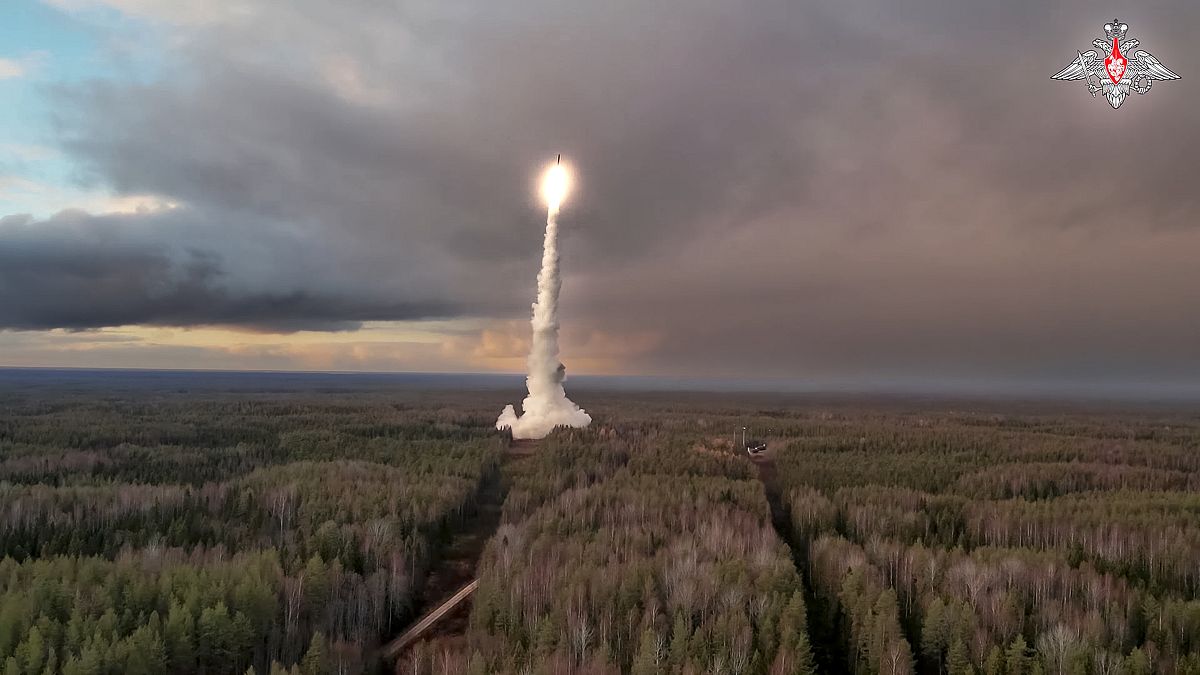Defence Minister Andrei Belousov claimed the exercise is intended to practice “strategic offensive forces launching a massive nuclear strike in response to a nuclear strike by the enemy.”
Russia has launched extensive exercises of its nuclear forces featuring test fire missile launches in a simulation of a retaliatory strike.
President Putin attributed the decision to begin drills to “the emergence of new external threats and risks”, adding that “it is important to have modern and constantly ready-to-use strategic forces”.
The exercises included the test-fire of a Yars intercontinental ballistic missile (ICBM) from the Plesetsk launch pad on the Kamchatka Peninsula, and other ICBMs from the Novomoskovsk and Knyaz Oleg nuclear submarines.
The military also carried out practice launches of long-range cruise missiles from nuclear-capable Tu-95 strategic bombers.
Putin noted that Moscow will continue to modernise its nuclear forces, deploying new missiles that have a higher precision, quicker launch times and increased capabilities to overcome missile defences.
The drills come at a time of escalating tensions with the West, following weeks of signalling by Russia that Moscow will respond if the West allows Ukraine to use Western-supplied longer-range weapons to strike deep inside Russia.
Last month, Putin warned such a move would put NATO at war with Russia.
He also announced a new version of the nuclear doctrine that considers a conventional attack on Russia by a non-nuclear nation that is supported by a nuclear power to be a joint attack on his country.
Putin also declared that the revised document envisages possible nuclear weapons use in case of a massive air attack, holding the door open to a potential nuclear response to any aerial assault – an ambiguity intended to deter the West.
On his visit to Beijing, the President of Finland called on China to assist in de-escalating Russian nuclear activity.
“The final and fifth point I made is that it is very difficult to trust President Putin, especially when it comes to nuclear weapons, and that’s why it’s extremely important that a major power such as China keeps on having dialog with Russia and make sure that we can de-escalate as much as possible,” President Alexander Stubb told a press conference following his meeting with China’s President Xi Jinping.
Tuesday’s manoeuvres follow a series of other drills of Russia’s nuclear forces.
Earlier this year, the Russian military held a joint nuclear exercise with Moscow’s ally Belarus, which has hosted some of Russia’s tactical nuclear weapons.
